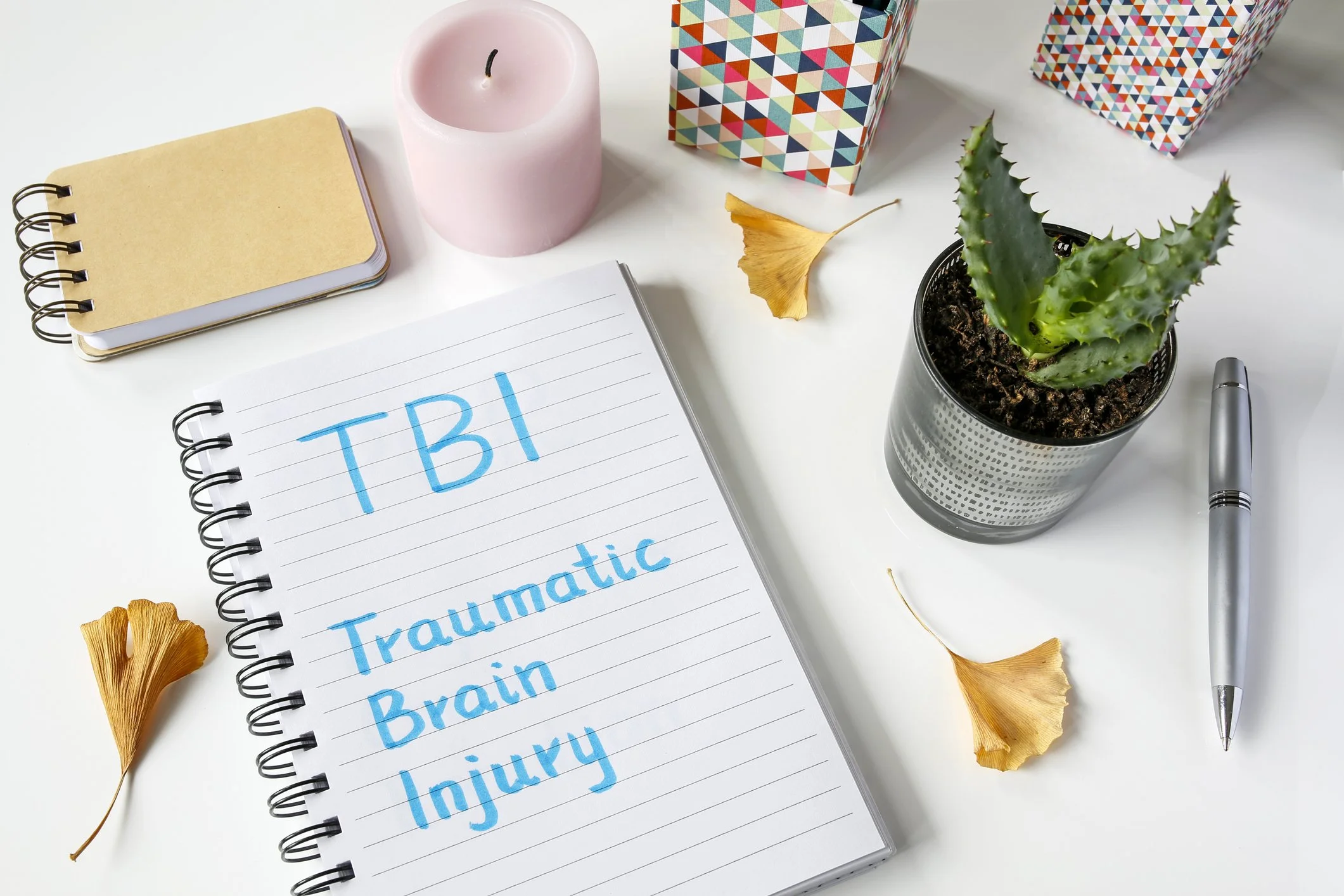Enhancing Quality of Life with TBI Therapy
TBI therapy focuses on restoring cognitive, physical, and emotional function after a brain injury. Through personalized treatment, it helps individuals regain independence and improve their quality of life.
Traumatic Brain Injury (TBI)
What is Traumatic Brain Injury?
Traumatic Brain Injury (TBI) occurs when a blow or jolt to the head disrupts normal brain function. It can also result from an object that fractures the skull, leading to varying degrees of brain damage.
Mild TBI: Temporarily affects brain cells.
Severe TBI: Can cause bruising, torn tissues, bleeding, and long-term complications.
Symptoms of Traumatic Brain Injury
TBI symptoms may be physical, sensory, cognitive, or behavioral, appearing immediately or developing over time.
Mild TBI Symptoms
Physical:
Headache
Nausea or vomiting
Fatigue or drowsiness
Dizziness or loss of balance
Speech difficulties
Sensory:
Blurred vision, ringing in ears, or changes in smell/taste
Sensitivity to light or sound
Cognitive & Behavioral:
Confusion, disorientation
Memory or concentration issues
Mood swings, anxiety, or depression
Sleep disturbances
Moderate to Severe TBI Symptoms
Includes all mild TBI symptoms, plus:
Physical:
Loss of consciousness (minutes to hours)
Persistent or worsening headache
Repeated vomiting, seizures
Dilated pupils, fluid drainage from nose/ears
Weakness or numbness in limbs
Loss of coordination
Cognitive & Behavioral:
Profound confusion
Agitation or unusual behavior
Slurred speech
Coma or disorders of consciousness
Symptoms in Children
Infants and young children may not be able to communicate their symptoms. Watch for:
Changes in eating, sleeping, or attention span
Unusual irritability or persistent crying
Loss of interest in toys or activities
Seizures
Seek immediate medical attention for any suspected TBI.
Causes of Traumatic Brain Injury
TBI can result from various incidents, including:
Falls: The leading cause, especially in children and older adults.
Vehicle Accidents: Car, motorcycle, and bicycle collisions.
Violence: Gunshots, domestic abuse, child abuse (e.g., shaken baby syndrome).
Sports Injuries: Football, boxing, hockey, skateboarding, etc.
Combat Injuries: Explosions, shrapnel wounds, and direct blows to the head.
Risk Factors
People at higher risk of TBI include:
Infants (0-4 years old)
Young adults (15-24 years old)
Adults over 60
Males in any age group
Prevention Strategies
General Safety Tips
Wear Seat Belts: Always buckle up in vehicles.
Avoid Driving Under the Influence: Alcohol and drugs impair judgment.
Use Helmets: Essential for biking, skateboarding, sports, and riding ATVs.
Stay Alert: Avoid distractions like smartphones while driving or walking.
Preventing Falls (Especially for Older Adults)
Install handrails in bathrooms and staircases.
Use non-slip mats in showers.
Improve home lighting and keep floors clear of clutter.
Get regular vision checkups and stay active to maintain balance.
Protecting Children
Use safety gates at stairways.
Install window guards to prevent falls.
Ensure playground surfaces have shock-absorbing materials.
Treatment and Recovery at the nCenter
At the nCenter, we offer specialized programs to aid TBI recovery and help clients return to normal functioning.
Neurostimulation Therapies
At the nCenter, we use non-invasive neurostimulation techniques such as:
Transcranial Direct Current Stimulation (tDCS)
Transcranial Alternating Current Stimulation (tACS)
Transcranial Random Noise Stimulation (tRNS)
These therapies apply a weak electrical current to the scalp, helping modulate brain activity and improve:
Motor Function
Cognitive Abilities (attention, memory retrieval)
Mood and Emotional Regulation
Neuroplasticity (enhancing the brain's ability to reorganize and form new connections)
The nCenter also uses neurofeedback modalities like Narbis and LENS plus Vielight, and Mendi modalities to optimize brain function after a TBI.
Nutritional Support for Brain Recovery
Working with the nCenter’s functional medicine nutritionist, Candice Vann, can aid recovery through a brain-healthy diet.
Recommended Brain-Boosting Foods:
Berries: Flavonoids in blackberries, blueberries, raspberries, and cherries improve memory.
Green Vegetables: Spinach, kale, broccoli, and collards are rich in vitamin K, which slows cognitive decline.
Fatty Fish: Salmon, herring, mackerel, and trout are high in omega-3s, which help remove beta-amyloid linked to Alzheimer’s.
Walnuts: Provide protein and healthy fats that enhance memory and focus.
Coffee/Tea: Caffeine has been shown to improve mental focus.
Challenges with Eating After TBI
Many TBI survivors struggle with eating regularly due to:
Loss of taste or smell
Memory and attention deficits
Depression or anxiety affecting appetite
Lack of hunger cues due to brain-gut miscommunication
A nutritionally dense diet is essential for brain recovery, and Candice can help ensure proper nutrition.
Additional Support at the nCenter
Recovery from a TBI can be challenging. Along with neurostimulation, neurofeedback and nutrition services, working with a psychotherapist can aid emotional and mental adjustment.
Available Psychotherapists:
Suzanne Panique (Kalispell; offers online and in-person counseling)
Therapy can help individuals manage emotional changes, cope with cognitive difficulties, and rebuild confidence in daily life.
For more information on how the nCenter can support your TBI recovery, reach out today!
